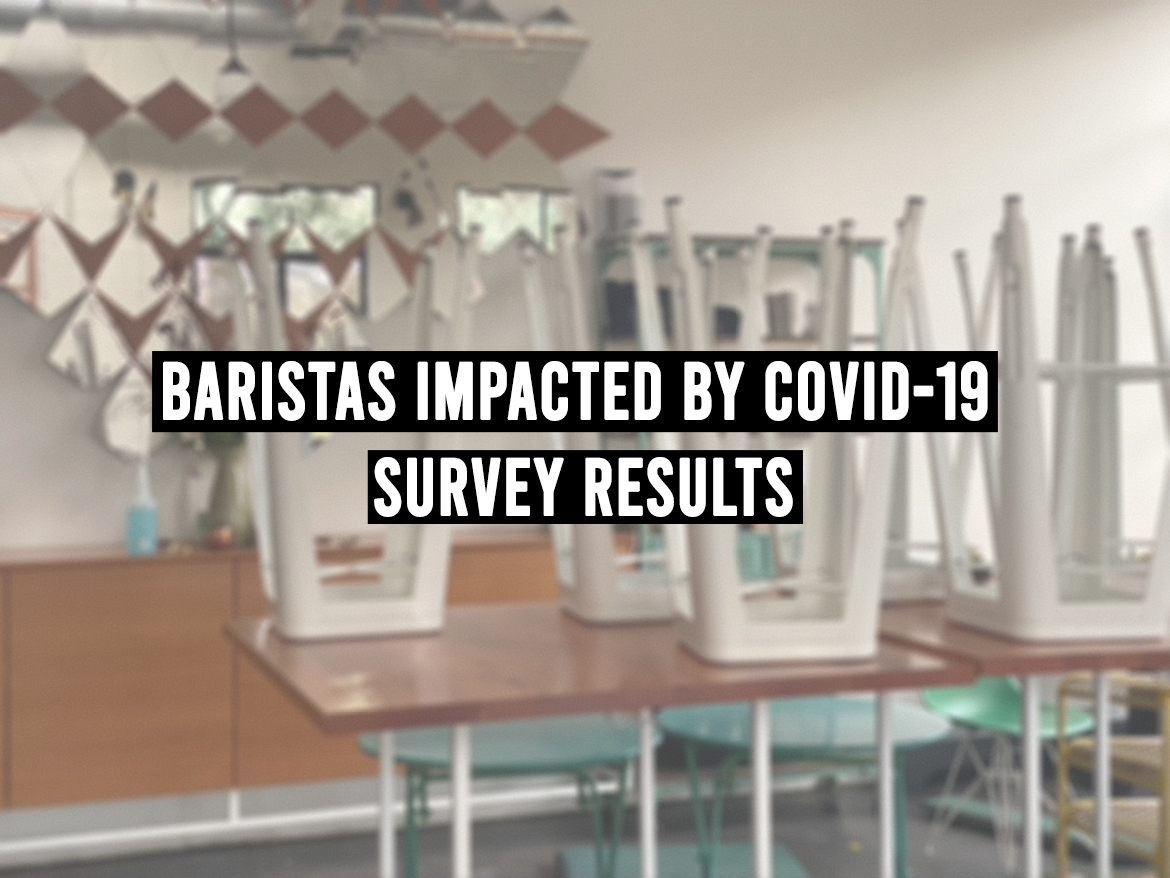
Two weeks ago, we sent the call out to all baristas to take a quick survey about how COVID-19 has affected their livelihoods. The responses we received, nearly 250 in total, represent a wide swath of the global coffee community. 26 countries in total comprise the list, with every continent except Antarctica represented. Though different coffee communities are at different stages and thus facing a heterogeneous mixture of setbacks and challenges, even with its relatively small sample size, this survey does bring to light a few unifying threads the global coffee community as a whole are experiencing.
There’s really no better way to put this, the picture these numbers paint is grim. Shops are closed, many of them permanently. Most baristas are, at best, working reduced hours, though a majority are simply unemployed for the foreseeable future. And with no end in sight to the work stoppage, these findings make it painfully clear that the need for outside intervention is necessary and immediate.
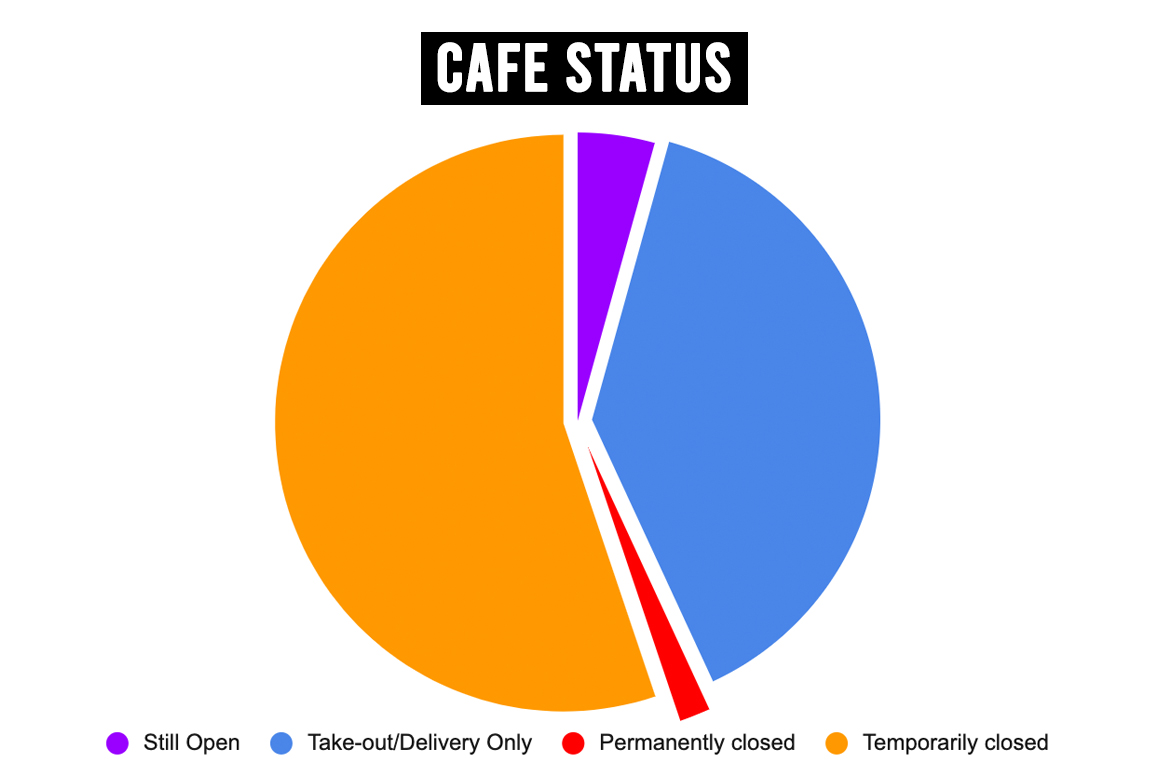
What we’re seeing right now is that there simply aren’t enough hours to go around. Less than 5% of all responses were from cafes that are keeping the same hours as they were pre-COVID, and of those, 91% are operating now as a to-go only/carry-out model, which even though the workable hours are the same, the number of staff needed in those hours is likely decreased, thus adding to the shortage. What is most common among the responses, though, is that cafes are closed entirely. Thankfully, the overwhelming majority are, for now, only temporarily closed, somewhere around 97% of all closures, 55% of all cafes in the survey.
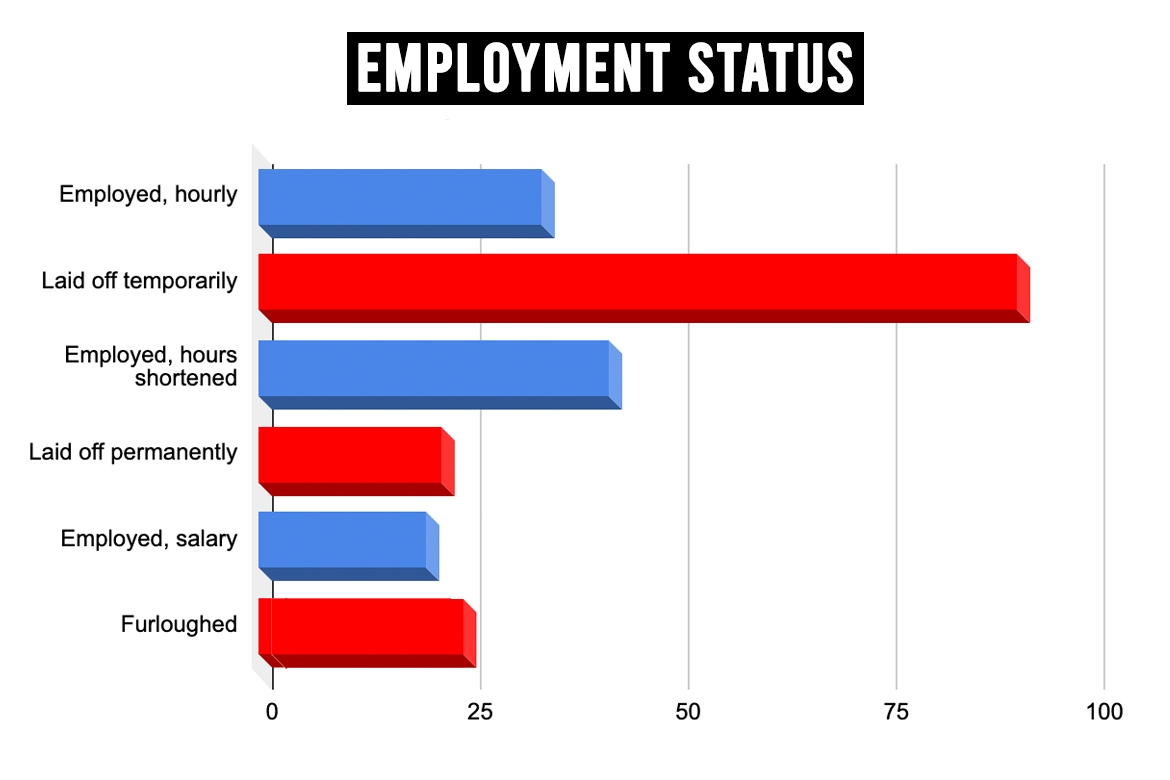 This, according to the responses, has led to mass unemployment. A total of 59% of those who took the survey stated they were currently unemployed, be it furloughed, temporarily laid off, or permanently laid off. Drilling down a little deeper, of the cafes that are still open, 30% of the folks still listed themselves as unemployed with another 34% seeing a reduction in hours.
This, according to the responses, has led to mass unemployment. A total of 59% of those who took the survey stated they were currently unemployed, be it furloughed, temporarily laid off, or permanently laid off. Drilling down a little deeper, of the cafes that are still open, 30% of the folks still listed themselves as unemployed with another 34% seeing a reduction in hours.
Looking at the dollars, that 34% bears out almost exactly. Of all folks still currently making an income, the take-home was on average 32% lower than where it was originally. If we include those who report now making no money at all, that number nearly doubles, to a 63% decrease in take-home pay.
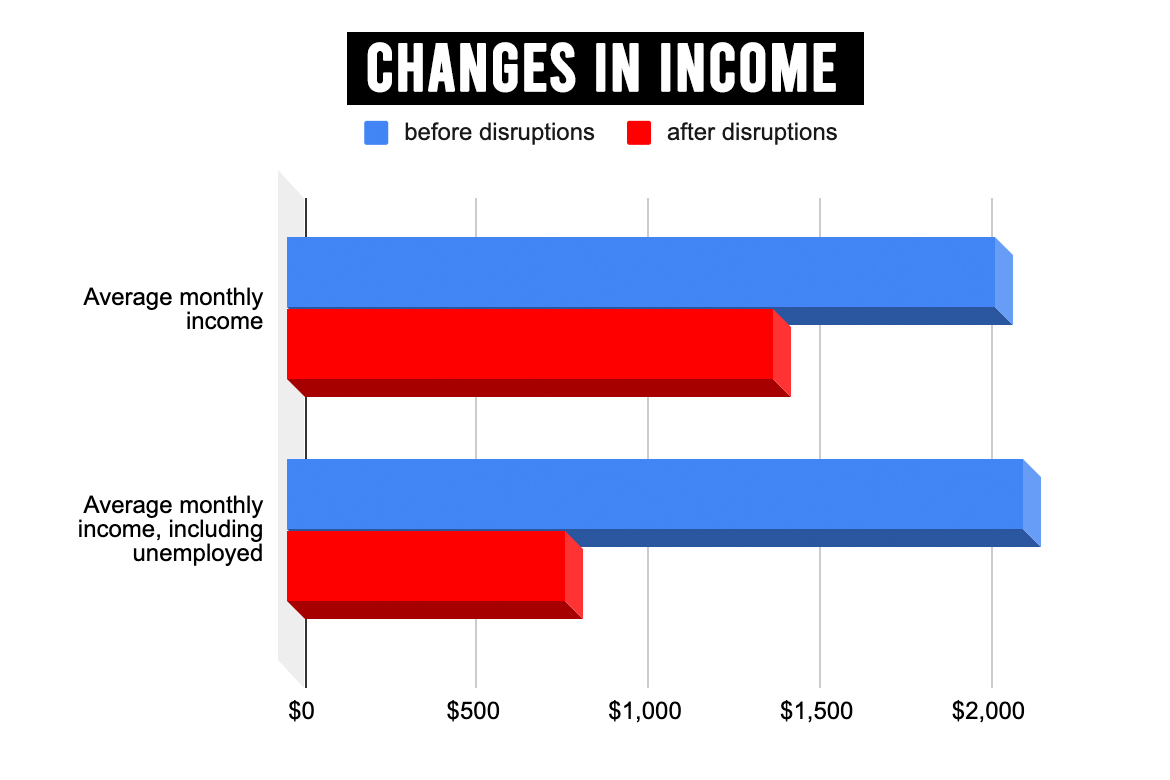
But what safety nets are there for these baristas? As of right now, 71% of the responders count themselves as insured, most through government-run health care or their parents’ or spouse’s insurance plan. Just over half who answered the 233 who answered this particular question state they have applied for unemployment, though even that comes with some difficulty. 46% of those who applied for unemployment have no idea how long it will be before they get any benefits. Only 17% report having no wait to receive benefits.
So where does this leave the baristas? Fewer hours, less money, not much in the way of government aid, where do they stand right now? Most who responded who were required to pay rent/mortgage, right at 72%, were able to pay for April in total, but 16% were not able to. The remaining 12% stated they were able to pay some of their rent. Thankfully, though, the 28% who couldn’t make rent do not find currently themselves houseless. Nearly 99% who chose to answer the question stated that they do have housing as of now.
As the pandemic rolls on, though, we are likely going to see an increase in all the worst numbers. Without some sort of intervention, more shops will close, even if only temporarily, more baristas will get laid off or furloughed, more rent payments will be missed, and more baristas will find themselves in search of housing. And if baristas’ satisfaction with how their governments are handling the pandemic is any indicator, we are not through the woods yet. Just take a look at the disparity between how respondents felt about their government’s response versus their employer’s, keeping in mind that the majority stated they were unemployed.
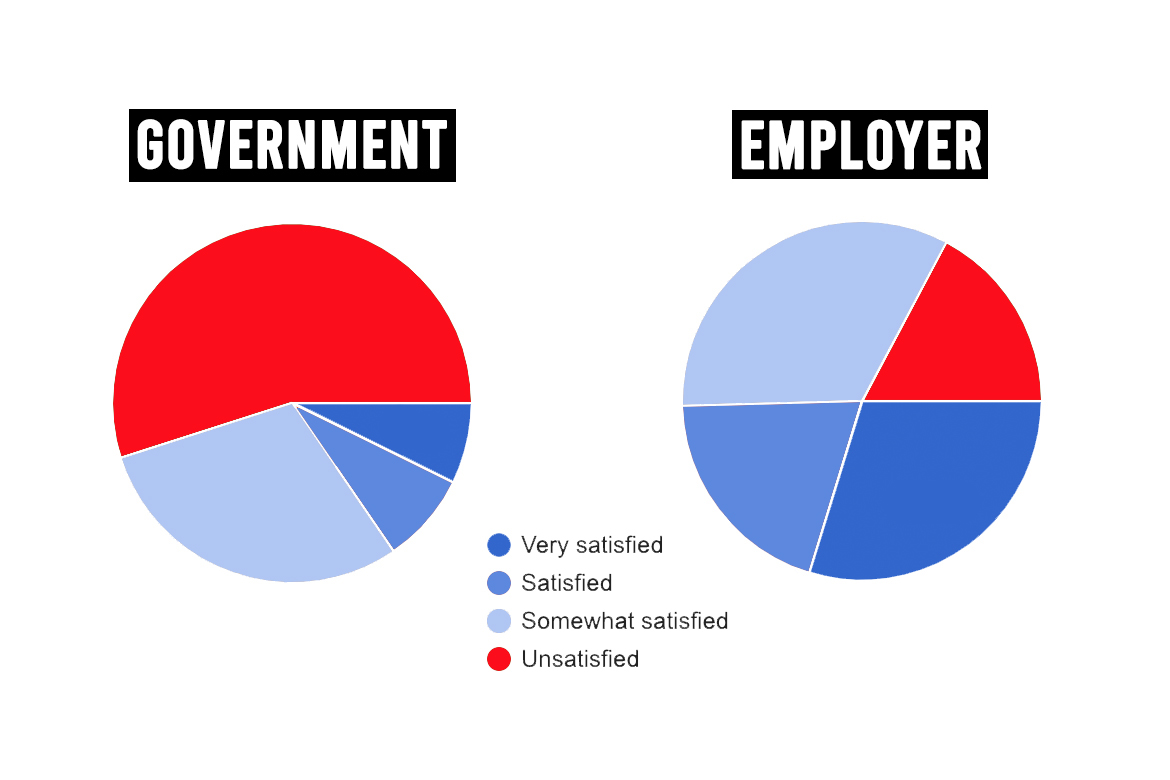
In short, it’s really bad and likely to get worse. So what can you do to stem the tide? You can support your local cafes and roasters by buying their coffee and donating to their virtual tip jars to help them make ends meet. You can call and email and text your government representatives to demand they take action. Assuming you are able, you can stay home and do your part in keeping the virus from spreading. And if you have to go out, make sure you are practicing social distancing, wearing a mask, and following the most up-to-date guidelines and recommendations from medical professionals like the Center for Disease Control here in America. These acts are small, but together their impact can be huge.
Zac Cadwalader is the managing editor at Sprudge Media Network and a staff writer based in Dallas. Read more Zac Cadwalader on Sprudge.

